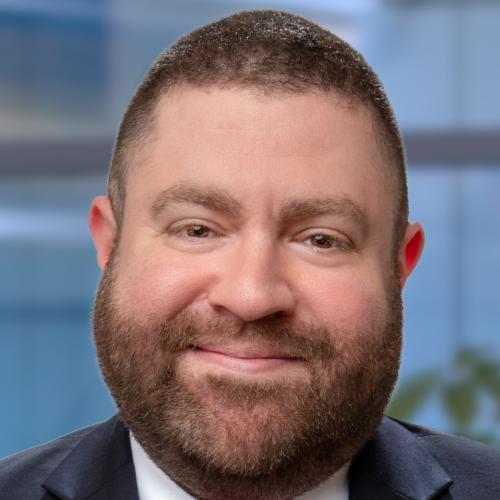Please note this agenda is subject to change, check your Swapcard App for the latest version.
Filter by:
-
Wednesday, 10 Sep, 202508:00amSession Topics:Medical Cost Containment08:55am
Welcome
Session Topics:Medical Cost ContainmentSession Type:General Session (Presentation)09:00am2026 Legislation Updates: From Compliance to Strategy
This session will explore the financial impact of federal legislation updates, such as upcoming price transparency rules, on both payment integrity and revenue cycle management programs. We’ll examine how these changes are expected to drive new cost pressures, reshape audit and payment practices, and create fresh challenges for both payers and providers. The discussion will also focus on collaborative strategies - how both sides can work together to ensure compliance, mitigate financial risk, and proactively adapt their programs to achieve better outcomes in a shifting regulatory landscape.
Session Topics:Medical Cost ContainmentSponsor(s):AMS Intelligent AnalyticsSpeaker(s):
Dave Cardelle
Chief Strategy OfficerAMS
Symone Rosales
Director of Revenue Cycle Regulatory ResearchSSM Health
Crystal Son
Executive Director, Enterprise Data & Analytics SolutionsHCSCCrystal Son is an Executive Director of Enterprise Data Analytics Solutions at Healthcare Service Corporation (HCSC), the largest customer-owned health insurer in the United States. HCSC provides access to care nationwide through Blue Cross Blue Shield plans in Illinois, Montana, New Mexico, Oklahoma and Texas as well as through its broad portfolio of companies. Crystal has 20 years of experience in deriving intelligence from data and mobilizing teams to action.
At HCSC, she leads the Strategic Initiatives & Partnerships team, which leads key programs such as Payment Integrity, Responsible AI and AI Literacy and Workforce Readiness. She is passionate about real-world applications of data-driven insights, storytelling through data, and building high-performance teams.
Prior to joining HCSC in October 2022, Crystal held several roles at previous organizations, including delivery of data science advisory services, management of healthcare and government customer portfolios, and the development and launch of several new products. She began her career in data as an epidemiologist, first for the City of New York, then with Memorial Sloan-Kettering Cancer Center but has called downtown Chicago home for the last 11 years.

Novelette Wallace, MPH, PMP, CSSBB
Head of Payment IntegrityJohns Hopkins HealthcareNovelette Wallace is a distinguished Payment Integrity Leader with a rich background spanning over 30 years in the healthcare industry. Her extensive experience includes leadership roles within payment integrity, where she has played pivotal roles in both payment integrity vendor organizations and health plans. Throughout her career, Novelette has demonstrated a remarkable ability to build and lead Payment Integrity departments from their inception. Her expertise has been instrumental in establishing robust processes and strategies to identify and recover inaccuracies in claims, contributing significantly to cost of care savings for health plans year after year.
Novelette has held key leadership positions with industry-leading organizations, including Performant Corp, United Healthcare, and Aetna (previously Coventry). In each role, she has consistently delivered results by optimizing payment integrity processes and driving operational excellence. Currently serving as the Assistant Vice President (AVP) of Payment Integrity for Johns Hopkins Health Plans, Novelette continues to bring her wealth of knowledge and leadership acumen to the forefront. Her dedication to achieving and surpassing cost of care savings goals exemplifies her commitment to advancing the financial health and efficiency of healthcare organizations.
With a proven track record of success and a comprehensive understanding of payment integrity within the healthcare landscape, Novelette Wallace stands as a respected leader in the industry, contributing significantly to the success of the organizations she serve
Session Type:General Session (Presentation)09:45amCoffee Break
Session Topics:Medical Cost ContainmentSession Type:General Session (Presentation)09:55amFacilitated Meetings
Curated meetings based on your RCM/PI painpoints and investments -30 minutes each -3 meetings per registered individual -All those not scheduled to take meetings will be encouraged to take part in interactive sessions, competitions and activities in the exhibition room.
Session Topics:Medical Cost ContainmentSession Type:General Session (Presentation)10:25amCoffee Break
Session Topics:Medical Cost ContainmentSession Type:General Session (Presentation)10:35amFacilitated Meetings
Curated meetings based on your RCM/PI painpoints and investments -30 minutes each -3 meetings per registered individual -All those not scheduled to take meetings will be encouraged to take part in interactive sessions, competitions and activities in the exhibition room.
Session Topics:Medical Cost ContainmentSession Type:General Session (Presentation)11:05amSavings PMPM Benchmarking Initiative - Standard Definitions & Calculations
Industry benchmarks to measure the impact of payment integrity currently don't exist, making it challenging to optimize performance and areas of opportunity. Standards are extremely complicated due to varied member populations and an inconsistent approach to calculating metrics.In this groundbreaking panel discussion, learn how a Working Group of payer and vendor SMEs have been collaborating over the last six months to develop a standard approach to calculating savings PMPM across LOB and audit programs. This session will share standard definitions and calculations, so attendees can understand how to calculate and compare their savings PMPM.Session Topics:Payment IntegritySpeaker(s):Moderator
Natalie Clayton
Head of Market IntelligenceKisaco Research
Monique Pierce
Head of Payment Solution StrategyCohere HealthMonique started her Payment Integrity career in COB at Oxford HealthPlans. After the merger with UnitedHealthcare, she led multiple teams and was responsible for creating innovative programs. Monique joined SCIO Health Analytics in 2014 and was responsible for system and process improvements before being promoted to VP of client engagement and business optimization In 2020, Monique joined start-up Devoted Health and created a full suite of programs from the ground up. Based on a passion for metrics and measuring performance, she centralized and standardized all programs reducing implementation time and maximizing savings. Today, Monique is driving opportunities to improve claim payment by designing and developing new prior auth and claim reconciliation products at Cohere Health.

Dr. Priscilla Alfaro, MD, FAAP, CPC, CPMA, COC, CIC, CFE, CRC
VP Payment IntegrityBlue Cross NCDr. Priscilla Alfaro is a seasoned healthcare professional with extensive experience in executive medical management, fraud prevention, and healthcare analytics. A certified medical coder, fraud examiner, and auditor, she has a proven track record of improving healthcare efficiency and preventing fraud, waste, and abuse across various roles and affiliations, including the Texas HHS and Anthem.

Karen Ballard
Director of ProperPay Product ManagementCGI Technologies and Solutions Inc.Karen Ballard is Director of Consulting Services, CGI, where she is responsible for managing the CGI ProperPay payment integrity platform. With a nearly 20-year career in the health payer space, Karen possesses a deep knowledge of claims processing, product management, payment integrity, and the Blue payer dynamic. Prior to joining CGI, Karen held a variety of positions in claims operations, BlueCard, and payment integrity during her 17-year tenure with Elevance Health (Anthem).
Karen holds a Bachelor of Arts and a Master of Business Administration from Southern New Hampshire University. She co-founded and previously co-facilitated the Blue PI Committee, comprised of payment integrity leaders from all 33 Blue Cross and Blue Shield plans and partnered with the Blue Cross and Blue Shield Association to drive change in the payment integrity space.
Agenda Track No.:Track 1Session Type:TrackTackling Billing Complexities Head On
Diagnosis codes and modifiers aren’t just billing details—they tell the story that determines how your claims are paid. When these elements don’t align, hospitals face denials, delays, and compliance risks. This session will break down how to accurately connect coding choices with billing practices to ensure claims reflect true clinical intent, reduce audit exposure, and secure appropriate reimbursement.
Learning Objectives:- Recognize the most common coding and modifier missteps that lead to denials and learn how to avoid them through stronger documentation and coding practices.
- Implement strategies to bridge gaps between clinical, coding, and billing teams—ensuring consistent, compliant claims that tell the right story from documentation to payment.
Session Topics:Revenue Cycle ManagementSpeaker(s):
Stephanie Sjogren
Director, Coding and Provider ReimbursementEmblemHealth/ConnecticareStephanie Sjogren is a director of coding and provider reimbursement, working with payment integrity to ensure proper claims adjudication and to prevent fraud, waste, and abuse. Prior to joining ConnectiCare/EmblemHealth, she performed provider audits and education at a women’s healthcare group. Sjogren has also worked with physicians and staff to integrate and use electronic health record systems effectively and to stay in compliance with the Centers for Medicare & Medicaid Services’ rules and regulations. Her areas of specialty are payment integrity, auditing, and clinical documentation improvement.
Agenda Track No.:Track 2Session Type:General Session (Presentation)11:50amCoffee Break
Session Topics:Medical Cost ContainmentSession Type:General Session (Presentation)12:00pmFacilitated Meetings
Curated meetings based on your RCM/PI painpoints and investments -30 minutes each -3 meetings per registered individual -All those not scheduled to take meetings will be encouraged to take part in interactive sessions, competitions and activities in the exhibition room.
Session Topics:Medical Cost ContainmentSession Type:General Session (Presentation)12:30pmLunch
Session Topics:Medical Cost ContainmentSession Type:General Session (Presentation)01:30pmEmerging and Evolving Fraud Trends
As fraud schemes become increasingly complex, healthcare organizations must stay ahead of evolving threats that impact both clinical and financial integrity. This session will explore the latest fraud trends across the healthcare landscape - from billing manipulation and phantom providers to evolving schemes in hospice, home health, telehealth, and behavioral health. Join industry leaders as they share real-world examples, warning signs to watch for, and proactive strategies for detecting, preventing, and responding to fraud across care settings.
Session Topics:Payment IntegritySponsor(s):Healthcare Fraud ShieldSpeaker(s):
Peter Monson
Sr. Manager, Special Investigations UnitUCare HPPeter Monson is the Sr. Manager of the Special Investigations Unit at UCare, where he leads a team dedicated to preventing, detecting, and correcting fraud, waste, and abuse in health care claims. With more than a decade of investigative and leadership experience across health plans and state government, he has overseen some of the most significant Medicaid fraud cases in Minnesota’s history and has redesigned investigative practices to maximize efficiency and impact.
In addition to his role at UCare, Peter previously served as President of the Midwest Insurance Fraud Prevention Association, fostering collaboration between private insurers and government agencies to strengthen fraud prevention efforts. He holds a Bachelor of Science in Criminal Justice and minor in Psychology from North Dakota State University.

Mandi Heiple
Director of Payment IntegrityMedicaMandi Heiple is the Director of Payment Integrity at Medica, where she leads a high-performing team dedicated to ensuring accurate, compliant, and efficient claims payment across commercial and government lines of business. She oversees end-to-end payment integrity strategy – from prospective editing and coding validation to retrospective audits. Her teams drive measurable savings while protecting provider relationships and improving member experiences.
With over 20 years in healthcare operations and payment integrity, Mandi has focused on designing and implementing solutions that close process gaps, reduce improper payments, and strengthen compliance frameworks.

Karen Weintraub
Executive Vice PresidentHEALTHCARE FRAUD SHIELDWith 25 years of data and 20 years of healthcare experience, Ms. Weintraub is currently responsible for the design and development of the company’s healthcare fraud detection software products and services. She provides subject matter expertise on system design and workflow, business rule development, data mining and fraud outlier algorithms as well as SIU policies and procedures. Prior to joining Healthcare Fraud Shield, managed SIUs on various healthcare investigations for all commercial, Medicaid and Medicare business and claims of fraudulent activity. Ms. Weintraub received a BA in Criminal Justice from the University of Delaware and an MA in Criminal Justice from Rutgers University. Ms. Weintraub is a Certified Professional Coder for Payers (CPC-P), a Certified Professional Medical Auditor (CPMA) from the American Academy of Professional Coders, a Certified Dental Coder (CDC) from the American Dental Association, and the founder of the Hamilton, NJ AAPC chapter. She is also an Accredited Healthcare Fraud Investigator (AHFI) from the National Healthcare Anti-Fraud Association (NHCAA). Ms. Weintraub Taught CPT Coding, Fraud & Audits, and Medical Billing, Laws and Ethics and the local community college.
Agenda Track No.:Track 1Session Type:TrackHow to Make Value-Based Care Work for You
As value-based care continues to reshape payment models, many health systems struggle to balance financial performance with care quality goals. This session will offer practical strategies to use denial data, coding insights, and care coordination metrics to strengthen value-based outcomes—without sacrificing revenue. This discussion will highlight how to engage teams, optimize processes, and identify sustainable financial opportunities within value-based contracts.
Learning Objectives:- Learn how to use denial patterns and audit insights to improve documentation, coding accuracy, and contract performance.
- Gain strategies to foster physician buy-in and leadership collaboration, finding “win-win” solutions that support both revenue integrity and value-based care success.
Session Topics:Revenue Cycle ManagementSpeaker(s):
Deepak Nalli
Vice President Revenue Cycle OperationsSpire Orthopedic PartnersAgenda Track No.:Track 2Session Type:Track02:15pmCoffee Break
Session Topics:Medical Cost ContainmentSession Type:General Session (Presentation)02:25pmFacilitated Meetings
Curated meetings based on your RCM/PI painpoints and investments -30 minutes each -3 meetings per registered individual -All those not scheduled to take meetings will be encouraged to take part in interactive sessions, competitions and activities in the exhibition room.
Session Topics:Medical Cost ContainmentSession Type:General Session (Presentation)02:55pmCoffee Break
Session Topics:Medical Cost ContainmentSession Type:General Session (Presentation)03:05pmFacilitated Meetings
Curated meetings based on your RCM/PI painpoints and investments -30 minutes each -3 meetings per registered individual -All those not scheduled to take meetings will be encouraged to take part in interactive sessions, competitions and activities in the exhibition room.
Session Topics:Medical Cost ContainmentSession Type:General Session (Presentation)Fireside Chat: Blurring the Lines; Navigating the Gray Zone Between Payment Integrity and FWA
As health plans continue to evolve their strategies around medical cost containment, the distinction between payment integrity and fraud, waste, and abuse is becoming increasingly nuanced. This session explores the “gray zone” where wasteful or abusive billing practices don’t clearly qualify as fraud, but still pose significant financial and ethical risks.
- How payment integrity and SIU teams can effectively collaborate
- Where the hand-off should occur between routine overpayment detection and deeper investigation
- Real-world examples where waste tipped into abuse, and how it was handled
- How health plans can build workflows that enable earlier intervention before issues escalate
- The operational and cultural gaps between PI and SIU and how to bridge them
Session Topics:Payment IntegritySponsor(s):Alivia AnalyticsSpeaker(s):
Matt Perryman
Chief Analytics & Insight OfficerAlivia AnalyticsMatt leads Alivia’s advanced analytics, data science, and platform development for fraud, waste, and abuse (FWA) detection—validated through payment integrity edits, audits, and data mining. With expertise in healthcare analytics and risk modeling, he oversees AI-powered solutions that help Medicaid, Medicare, and commercial payers prevent improper payments and uncover emerging fraud schemes.
Before assuming this role, Matt built a strong reputation at Alivia as a customer-facing data scientist, helping technical and non-technical users alike apply analytics to drive measurable results. He is a regular speaker at healthcare FWA conferences, including NHCAA and NAMPI, where he presents pre- and post-payment analytic strategies alongside health plan leaders. He was valedictorian of his graduating class from Boston College with degrees in biochemistry and philosophy.

Scott Hirschbrunner
Director of Payment IntegrityNebraska BlueScott brings a wealth of experience, with a 26-year background in PI leadership at CMS, Optum, and Blue Cross & Blue Shield of Kansas City. He currently is the Director of Payment Integrity at Blue Cross Blue Shield of Nebraska. His functional areas of responsibility include SIU, Recovery, Bill-Audit, Claim Editing, COB, W/C, Subrogation, DRG Audit, Data Mining and Credit Balance Recovery. Scott’s goals are strengthening management of PI vendor performance and contracts, seeking opportunities for generating revenue and setting of targets using national benchmark data. He holds a Bachelor of Science in Accounting with a minor in Management and Communications and is well-versed in both commercial and government lines of business. Scott is married for 16 years with two boys and two girls. He enjoys being outdoors, doing yard work, taking walks, coaching girls’ softball, giving blood, and volunteering.
Time:10:55am - 11:25amAgenda Track No.:Track 1Summary:Fireside ChatSession Type:TrackWhat Denials Are Really Telling You (and How to Fix It)
Denial management isn’t just about fighting back—it’s about understanding why denials happen and fixing the root causes upstream. This session will focus on how hospitals and health systems can use audit findings and denial data to identify coding gaps, documentation weaknesses, and process breakdowns that lead to preventable denials. Learn how to close these gaps through stronger internal collaboration across revenue cycle, coding, and clinical teams, while also using data-driven insights to foster more productive payer relationships.
Learning Objectives:- Learn how to analyze denial patterns and audit results to uncover documentation, coding, and process issues—enabling proactive prevention rather than reactive rework.
- Discover best practices for improving internal workflows, fostering collaboration between clinical and revenue cycle teams, and ensuring that claims reflect accurate, defensible coding and clear clinical intent.
Session Topics:Revenue Cycle ManagementSpeaker(s):
Betye Ochoa
Director, Revenue Cycle RedesignNorthShore University HealthSystem
Kimberly D Conner
Subject Matter ExpertIndependentAgenda Track No.:Track 2Session Type:Track04:20pmCoffee Break
Session Topics:Medical Cost ContainmentSession Type:General Session (Presentation)04:30pmFacilitated Meetings
Curated meetings based on your RCM/PI painpoints and investments -30 minutes each -3 meetings per registered individual -All those not scheduled to take meetings will be encouraged to take part in interactive sessions, competitions and activities in the exhibition room.
Session Topics:Medical Cost ContainmentSession Type:General Session (Presentation)05:00pmPayer-Provider Roundtables
Engage in focused, small-group discussions where payers and providers connect over specific topics, share perspectives, and explore solutions from both sides—offering a balanced, holistic view of key challenges and opportunities.- Price Transparency 4 Years In: Navigating Compliance, Challenges, and Opportunities for Providers and PayersJoin us for a dynamic roundtable at the Healthcare Payment and Revenue Integrity Congress, where providers and payers will explore the impact of price transparency. Led by Dave Cardelle (SIIA Price Transparency Committee), the session will examine key challenges and strategies around the CMS Final Rule on Hospital Price Transparency and TiC MRFs, four years on. Discussion topics include compliance, penalties, costs, rate setting, contract negotiations, and using transparency data for analysis. Don’t miss this chance to share insights and shape the future of price transparency.Dave Cardelle, Chief Strategy Officer, AMS
- Payment Integrity 101Join us for Payment Integrity 101 at the Healthcare Payment and Revenue Integrity Congress, a foundational session designed for those new to or expanding their role in payment integrity. This session will break down the key components of payment integrity, from pre-pay to post-pay strategies, common fraud, waste, and abuse (FWA) schemes, to how plans and providers can align on reducing improper payments. Whether you're building a team, refining your approach, or just starting out, this session offers a practical roadmap and terminology primer to help you navigate the space with confidence.Simi Binning, Responsible AI Lead, HCSC
Charlie Jensen, Head of Payment Integrity Strategy, Blue Cross Blue Shield, Illinois Provider Contracts Uncovered: From Fine Print to Financial Power
Contracts are more than legal fine print. They decide whether your organization thrives or just survives. In this session, we’ll pull back the curtain on contract language, expose common traps that drain revenue, and share negotiation tactics that actually move the needle. Expect real talk, practical tips, and a fresh look at how providers can flip contracts into cost-containing, revenue-protecting assets.
Quick-Hit Takeaways
Spot the traps: Know the clauses that cost you most.
Negotiate smarter: Tactics payers don’t want you to know.
Stay compliant: Align terms with today’s rules.
Think strategic: Make every contract work for your bottom line.Maya Turner, Executive Managing Director, Turner Expert Consulting Services, LLC
- The Next Era of Payment Integrity: Smarter, Faster, More Scalable
Join Tina Azar from Machinify for an intimate discussion on the evolving landscape of payment integrity. We’ll explore real-world challenges in balancing speed, accuracy, and provider relations, and share perspectives on how technology and strategy are shaping the future. This roundtable offers a chance to exchange experiences, uncover new approaches, and walk away with practical ideas to apply within your own organization.
Tina Azar, VP COS and Sales Enablement, Machinify
Session Topics:Medical Cost ContainmentSponsor(s):MachinifyAMS Intelligent AnalyticsSpeaker(s):
Maya Turner
Owner/Executive Managing DirectorTurner Expert Consulting
Dave Cardelle
Chief Strategy OfficerAMS
Charlie Jensen
Head of Payment Integrity StrategyBlue Cross Blue Shield, Illinois
Simi Binning
Responsible AI LeadHCSCSimi Binning is an accomplished healthcare professional with over a decade of experience in developing and executing successful strategies that drive business growth. Currently serving as a Responsible AI lead at HCSC, her focus is on AI governance and innovative problem solving.

Tina Azar
VP COS and Sales EnablementMachinifySession Type:General Session (Presentation)06:00pmNetworking Drinks & Speaker Dinners
Session Topics:Medical Cost ContainmentSession Type:General Session (Presentation) -
Thursday, 11 Sep, 202508:00am
Registration
Session Topics:Medical Cost Containment08:55amWelcome to Day 2
Session Type:General Session (Presentation)09:00amPayer-Provider Panel: Improving Relationships Through Trust and Collaboration
Payer-provider abrasion remains one of the biggest barriers to efficient payment, timely care, and operational success. Too often, denials, delayed payments, and prior authorization disputes stem from misaligned expectations, incomplete data, and unclear communication—not true disagreement. This session will offer a candid, solutions-focused discussion on what payers really need from providers, what providers can do upfront to reduce friction, and how both sides can work together to minimize rework, prevent avoidable denials, and create shared wins.
Learning Objectives:- Gain clear insights into how providers can proactively align documentation, coding, and authorization workflows to meet payer requirements and reduce denials and appeals.
- Learn practical approaches to improve data sharing, reduce ambiguity in clinical and billing documentation, and foster payer-provider partnerships that lead to faster resolutions and fewer administrative burdens.
- Explore strategies to move beyond transactional interactions and build trust-based partnerships between payers and providers—focusing on shared goals like timely care, accurate payment, and operational efficiency.
Session Topics:Medical Cost ContainmentSponsor(s):Trend Health PartnersSpeaker(s):Moderator
Sarah Armstrong
CEOTrend Health PartnersSarah is, above all else, a passionate leader of people. With a career spanning over two decades, her journey began as a financial analyst at a small community hospital in Kentucky, where she developed a profound appreciation for the pivotal role of people in healthcare, both in the clinic and in the back office. This early experience ignited her passion for enhancing Revenue Cycle performance and fostering leadership talents that resonate with the values of collaboration and efficiency.
Her leadership at TREND is deeply influenced by her comprehensive background, championing a culture of inclusivity and collaboration. By valuing each team member's contribution, Sarah drives innovations that not only challenge the conventional adversarial healthcare models but also promote a cooperative and efficient environment that benefits all stakeholders.
She leads with a commitment to transparency, cooperation over competition, and a deep-seated belief in empowering her team. Under her leadership, TREND is pioneering a new era of healthcare solutions that prioritize accuracy, fairness, and collaborative problem-solving, all aimed at improving outcomes for patients and providers alike.
Sarah's leadership is characterized by her ability to bridge traditional divides within the industry, advocating for a paradigm shift from adversarial dynamics to cooperative partnerships. Her strategic vision is supported by her unwavering dedication to TREND's ideals, both internally and externally, driving TREND Health Partners to challenge the status quo and lead American healthcare into a more efficient and equitable future.
Panelists
Jonique Dietzen
Payment Integrity DirectorCareOregonWith over 18 years of experience in healthcare billing and finance, I am a certified professional coder dedicated to ensuring accurate claims and proper reimbursement for providers. Having worked extensively on the provider side in finance and revenue cycle, I bring wealth of knowledge to the table, particularly in processing and payment integrity.
Throughout my career, I have gained a comprehensive understanding of billing challenges from both perspectives. This unique insight drives my commitment to improving billing practices and advocating for provider education. I continue to leverage my expertise to enhance billing processes and support providers in navigating the complexities of healthcare finance.
Mandi Heiple
Director of Payment IntegrityMedicaMandi Heiple is the Director of Payment Integrity at Medica, where she leads a high-performing team dedicated to ensuring accurate, compliant, and efficient claims payment across commercial and government lines of business. She oversees end-to-end payment integrity strategy – from prospective editing and coding validation to retrospective audits. Her teams drive measurable savings while protecting provider relationships and improving member experiences.
With over 20 years in healthcare operations and payment integrity, Mandi has focused on designing and implementing solutions that close process gaps, reduce improper payments, and strengthen compliance frameworks.

Dr. Ahmad Kilani MD, MBA, MLS, MSIT, CHCQM-PHYADV, FABQAURP, FACP, FACHE
Medical DirectorCleveland ClinicDr. Kilani is currently serving as Associate Medical Director for Cleveland Clinic Revenue Cycle Management and Medical Director of Throughput for Cleveland Clinic West Submarket. Nationally, he serves as Vice President of Operations for the American College of Physician Advisors. Dr. Kilani is board certified in Internal Medicine. Additionally, he has a Master of Business in Healthcare from Baldwin Wallace University, a Master of Legal Studies from Cleveland-Marshall College of Law, and a Master of Science in Information Technology from the University of Cincinnati. He is a Fellow of the American College of Physicians, a Fellow of the American College of Healthcare Executives, and board-certified in Healthcare Quality Management through the American Board of Quality Assurance and Utilization Review Physicians.”

Heather Wilson
Vice President and Chief Revenue Cycle OfficerThe Christ Hospital Health NetworkSession Type:General Session (Presentation)09:45amCoffee Break
Session Topics:Medical Cost ContainmentSession Type:General Session (Presentation)09:55amFacilitated Meetings
Curated meetings based on your RCM/PI painpoints and investments -30 minutes each -3 meetings per registered individual -All those not scheduled to take meetings will be encouraged to take part in interactive sessions, competitions and activities in the exhibition room.
Session Topics:Medical Cost ContainmentSession Type:General Session (Presentation)10:25amCoffee Break
Session Topics:Medical Cost ContainmentSession Type:General Session (Presentation)10:35amFacilitated Meetings
Curated meetings based on your RCM/PI painpoints and investments -30 minutes each -3 meetings per registered individual -All those not scheduled to take meetings will be encouraged to take part in interactive sessions, competitions and activities in the exhibition room.
Session Topics:Medical Cost ContainmentSession Type:General Session (Presentation)11:05amThe Guide to Building Safe, Transparent, and Effective AI Partnerships
As AI use rapidly expands across health plan operations, understanding how these technologies will be governed is essential. In this session, experts will take a deeper dive into the current state of AI governance frameworks and the legislative landscape shaping their use. Health plan leaders will gain timely insights into what’s happening now—and what’s coming next—in AI oversight, helping them prepare their organizations for compliance, accountability, and responsible innovation.
Learning Objectives:- Learn how to assess, document, and monitor AI models used in claims review, fraud detection, and payment integrity to ensure they meet accountability, explainability, and compliance standards.
- Gain actionable insights into current and pending legislation on AI use in healthcare, and understand what steps your organization should take now to align with evolving regulatory expectations and avoid audit risks.
Sponsor(s):MachinifySpeaker(s):
Crystal Son
Executive Director, Enterprise Data & Analytics SolutionsHCSCCrystal Son is an Executive Director of Enterprise Data Analytics Solutions at Healthcare Service Corporation (HCSC), the largest customer-owned health insurer in the United States. HCSC provides access to care nationwide through Blue Cross Blue Shield plans in Illinois, Montana, New Mexico, Oklahoma and Texas as well as through its broad portfolio of companies. Crystal has 20 years of experience in deriving intelligence from data and mobilizing teams to action.
At HCSC, she leads the Strategic Initiatives & Partnerships team, which leads key programs such as Payment Integrity, Responsible AI and AI Literacy and Workforce Readiness. She is passionate about real-world applications of data-driven insights, storytelling through data, and building high-performance teams.
Prior to joining HCSC in October 2022, Crystal held several roles at previous organizations, including delivery of data science advisory services, management of healthcare and government customer portfolios, and the development and launch of several new products. She began her career in data as an epidemiologist, first for the City of New York, then with Memorial Sloan-Kettering Cancer Center but has called downtown Chicago home for the last 11 years.

Simi Binning
Responsible AI LeadHCSCSimi Binning is an accomplished healthcare professional with over a decade of experience in developing and executing successful strategies that drive business growth. Currently serving as a Responsible AI lead at HCSC, her focus is on AI governance and innovative problem solving.
Agenda Track No.:Track 1Session Type:TrackRevenue Cycle Automation - Can AI Drive Accuracy and Efficiency
As payers increasingly deploy AI and automation to accelerate denials and reduce payments, health systems must evolve their own technology strategies to keep pace. This session will share best practices for integrating AI, automation, and machine learning into revenue cycle operations—drawing on real-world examples from leading health systems, hospitals and practices. Explore the journey of implementing automation and machine learning while navigating governance, overcoming technical hurdles, and fostering adaptability across teams.
Learning Objectives:- Understand technical and operational obstacles in adopting automation and AI tools, and learn proven strategies to overcome them effectively.
- Gain insights into building flexible governance frameworks, supporting staff education, and fostering adaptability to maximize the impact of emerging technologies in your revenue cycle.
Speaker(s):
Deepak Nalli
Vice President Revenue Cycle OperationsSpire Orthopedic PartnersTime:11:30amAgenda Track No.:Track 2Session Type:Track11:50amCoffee Break
Session Topics:Medical Cost ContainmentSession Type:General Session (Presentation)12:00pmFacilitated Meetings
Curated meetings based on your RCM/PI painpoints and investments -30 minutes each -3 meetings per registered individual -All those not scheduled to take meetings will be encouraged to take part in interactive sessions, competitions and activities in the exhibition room.
Session Topics:Medical Cost ContainmentSession Type:General Session (Presentation)12:00pmFacilitated Meetings
Curated meetings based on your RCM/PI painpoints and investments -30 minutes each -3 meetings per registered individual -All those not scheduled to take meetings will be encouraged to take part in interactive sessions, competitions and activities in the exhibition room.
Session Topics:Medical Cost ContainmentSession Type:General Session (Presentation)12:30pmLunch
Session Topics:Medical Cost ContainmentSession Type:General Session (Presentation)01:30pmPayment Integrity Best Practice Speed Dating
Session Topics:Payment IntegritySession Type:General Session (Presentation)RCM Best Practice Speed Dating
Session Topics:Revenue Cycle ManagementSession Type:General Session (Presentation)02:15pmCoffee Break
Session Topics:Medical Cost ContainmentSession Type:General Session (Presentation)02:25pmFacilitated Meetings
Curated meetings based on your RCM/PI painpoints and investments -30 minutes each -3 meetings per registered individual -All those not scheduled to take meetings will be encouraged to take part in interactive sessions, competitions and activities in the exhibition room.
Session Topics:Medical Cost ContainmentSession Type:General Session (Presentation)02:55pmInnovation Showcase
Engage with quick, interactive demos from emerging vendors as they present new and innovative payment integrity and RCM solutions. A panel of judges will award the "Innovator of the Year" to the vendor with the most promising technology or approach. Apply here to showcase your solution or sign up here to join the judging panel.
Session Topics:Medical Cost ContainmentAgenda Track No.:Track 1Session Type:General Session (Presentation)03:35pmCoffee Break
Session Topics:Medical Cost ContainmentSession Type:General Session (Presentation)03:45pmFacilitated Meetings
Curated meetings based on your RCM/PI painpoints and investments -30 minutes each -3 meetings per registered individual -All those not scheduled to take meetings will be encouraged to take part in interactive sessions, competitions and activities in the exhibition room.
Session Topics:Medical Cost ContainmentSession Type:General Session (Presentation)04:15pmCoffee Break
Session Topics:Medical Cost ContainmentSession Type:General Session (Presentation)04:25pmFacilitated Meetings
Curated meetings based on your RCM/PI painpoints and investments -30 minutes each -3 meetings per registered individual -All those not scheduled to take meetings will be encouraged to take part in interactive sessions, competitions and activities in the exhibition room.
Session Topics:Medical Cost ContainmentSession Type:General Session (Presentation)04:55pmImproving Risk Adjustment Coding Accuracy to Optimize Reimbursement
Accurate risk adjustment coding is a cornerstone of effective payment integrity, directly impacting reimbursement accuracy and audit risk. This session will explore how health plans can strengthen HCC coding through targeted audits, technology solutions, and coder education—ensuring proper risk score capture, reducing payment errors, and supporting defensible, compliant payment practices.
Learning Objectives:
- Understand common sources of coding errors and how to use audit findings, coder education, and feedback loops to strengthen HCC coding precision and reduce payment risk.
- Explore how strong auditing practices, clear documentation standards, and focused coder training can help health plans identify gaps, improve coding accuracy, and ensure compliance across payment integrity programs.
Speaker(s):
Josh Miller
Director, Payment IntegrityProminenceAgenda Track No.:Track 1Session Type:General Session (Presentation)Cybersecurity: Achieving Real-Time Data Sharing Without Risk
As real-time data sharing becomes essential for care coordination, prior authorizations, and value-based care, hospitals and health systems face growing pressure to exchange sensitive information quickly—without compromising security. This session will explore how provider organizations can balance the need for timely data access with robust cybersecurity strategies. Learn practical approaches to mitigate risk, protect patient information, and build the infrastructure needed for secure, compliant data sharing across systems and partners.
Learning Objectives:- Understand key risks associated with real-time data sharing and learn strategies to safeguard PHI while supporting operational and clinical needs.
- Explore best practices for access controls, vendor oversight, encryption, and audit readiness to enable safe data sharing across health systems, payers, and partners.
Speaker(s):
Seth Jeremy Katz
Vice President of Revenue Cycle and Health Information ManagementUniversity Health KCAgenda Track No.:Track 2Session Type:General Session (Presentation)05:30pmEnd of Conference
Session Type:General Session (Presentation)08:00pmPayer-Provider Party
Connect with payers, providers, and vendors in a relaxed, informal setting during an unforgettable evening in the heart of Chicago—while enjoying everything the city has to offer.
Session Type:General Session (Presentation)
Jump to: Wednesday, 10 Sep | Thursday, 11 Sep
Meet the PI leaders
Payment integrity leaders and emerging experts from the leading health plans on the East coast will be coming together this May to share their insights on the trends and challenges of the market.
To view the full line-up view the agenda below or click here.

Cathy Newman
Cathy Newman is the Managing Director of Value-Based strategy for Blue Cross Blue Shield of Rhode Island. Her experience in the healthcare industry spans over twenty years working for both large integrated providers, small IPAs, and health plans. In her ten years with Blue Cross, she has worked to advance value-based opportunities from pay for performance to full-risk global capitation models. She is passionate about her work and has been able to develop more collaborative and meaningful relationships with providers throughout the state of Rhode Island.

Monique Pierce
Monique started her Payment Integrity career in COB at Oxford HealthPlans. After the merger with UnitedHealthcare, she led multiple teams and was responsible for creating innovative programs. Monique joined SCIO Health Analytics in 2014 and was responsible for system and process improvements before being promoted to VP of client engagement and business optimization In 2020, Monique joined start-up Devoted Health and created a full suite of programs from the ground up. Based on a passion for metrics and measuring performance, she centralized and standardized all programs reducing implementation time and maximizing savings. Today, Monique is driving opportunities to improve claim payment by designing and developing new prior auth and claim reconciliation products at Cohere Health.

Drew Satriano
Drew Satriano, a seasoned professional with an MBA, CPA, CFE, and JD, brings extensive expertise in payment integrity, accounting, auditing, and legal matters within regulated environments. Notably, he has spearheaded innovative initiatives resulting in a 968% increase in savings since 2014. His recent focus includes leveraging AI and technology for enhanced accuracy and efficiency in provider payment processes.

Michael Devine

Danielle Nelson
Danielle M. Nelson graduated from the University of Missouri with a Bachelor of Science in Criminology and Criminal Justice. In 2017, she received a Master of Arts in Management and Leadership from Webster University.
Prior to joining for PacificSource Health Plans (PacificSource) as the Fraud, Waste and Abuse Program Manager in 2022, Ms. Nelson spent seven years working in Special Investigations Units (SIU) of varying sizes at both for-profit and not-for profit organizations, allowing her to gain experience in investigating fraud for government-funded programs, ACA, FEHB, and commercial lines of business. Before moving into fraud investigations in health care, Ms. Nelson spent 15 years in finance, working in consumer lending and back-office operations.
Ms. Nelson is a member of the Association of Certified Fraud Examiners, the St. Louis Chapter of ACFE, and National Health Care Anti-Fraud Association (NHCAA) and a participant with the Healthcare Fraud Prevention Partnership (HFPP).

Conor McCauley
My name is Conor McCauley. I am the Director of Payment Integrity Clinical Capabilities at Highmark. Being a Critical Care nurse, it is easy to see there are issues surrounding healthcare funding. Inserting clinical insights into reimbursement methodologies can lead to affordability and improved patient outcomes. Clinicians are well positioned to make a difference here. My passion is developing an engaged team, effective processes, and surrounding clinicians with the right technology, data, and market insights so they can work at the top of their licensure.

Cathy Newman
Cathy Newman is the Managing Director of Value-Based strategy for Blue Cross Blue Shield of Rhode Island. Her experience in the healthcare industry spans over twenty years working for both large integrated providers, small IPAs, and health plans. In her ten years with Blue Cross, she has worked to advance value-based opportunities from pay for performance to full-risk global capitation models. She is passionate about her work and has been able to develop more collaborative and meaningful relationships with providers throughout the state of Rhode Island.

Monique Pierce
Monique started her Payment Integrity career in COB at Oxford HealthPlans. After the merger with UnitedHealthcare, she led multiple teams and was responsible for creating innovative programs. Monique joined SCIO Health Analytics in 2014 and was responsible for system and process improvements before being promoted to VP of client engagement and business optimization In 2020, Monique joined start-up Devoted Health and created a full suite of programs from the ground up. Based on a passion for metrics and measuring performance, she centralized and standardized all programs reducing implementation time and maximizing savings. Today, Monique is driving opportunities to improve claim payment by designing and developing new prior auth and claim reconciliation products at Cohere Health.

Drew Satriano
Drew Satriano, a seasoned professional with an MBA, CPA, CFE, and JD, brings extensive expertise in payment integrity, accounting, auditing, and legal matters within regulated environments. Notably, he has spearheaded innovative initiatives resulting in a 968% increase in savings since 2014. His recent focus includes leveraging AI and technology for enhanced accuracy and efficiency in provider payment processes.

Michael Devine

Danielle Nelson
Danielle M. Nelson graduated from the University of Missouri with a Bachelor of Science in Criminology and Criminal Justice. In 2017, she received a Master of Arts in Management and Leadership from Webster University.
Prior to joining for PacificSource Health Plans (PacificSource) as the Fraud, Waste and Abuse Program Manager in 2022, Ms. Nelson spent seven years working in Special Investigations Units (SIU) of varying sizes at both for-profit and not-for profit organizations, allowing her to gain experience in investigating fraud for government-funded programs, ACA, FEHB, and commercial lines of business. Before moving into fraud investigations in health care, Ms. Nelson spent 15 years in finance, working in consumer lending and back-office operations.
Ms. Nelson is a member of the Association of Certified Fraud Examiners, the St. Louis Chapter of ACFE, and National Health Care Anti-Fraud Association (NHCAA) and a participant with the Healthcare Fraud Prevention Partnership (HFPP).

Conor McCauley
My name is Conor McCauley. I am the Director of Payment Integrity Clinical Capabilities at Highmark. Being a Critical Care nurse, it is easy to see there are issues surrounding healthcare funding. Inserting clinical insights into reimbursement methodologies can lead to affordability and improved patient outcomes. Clinicians are well positioned to make a difference here. My passion is developing an engaged team, effective processes, and surrounding clinicians with the right technology, data, and market insights so they can work at the top of their licensure.